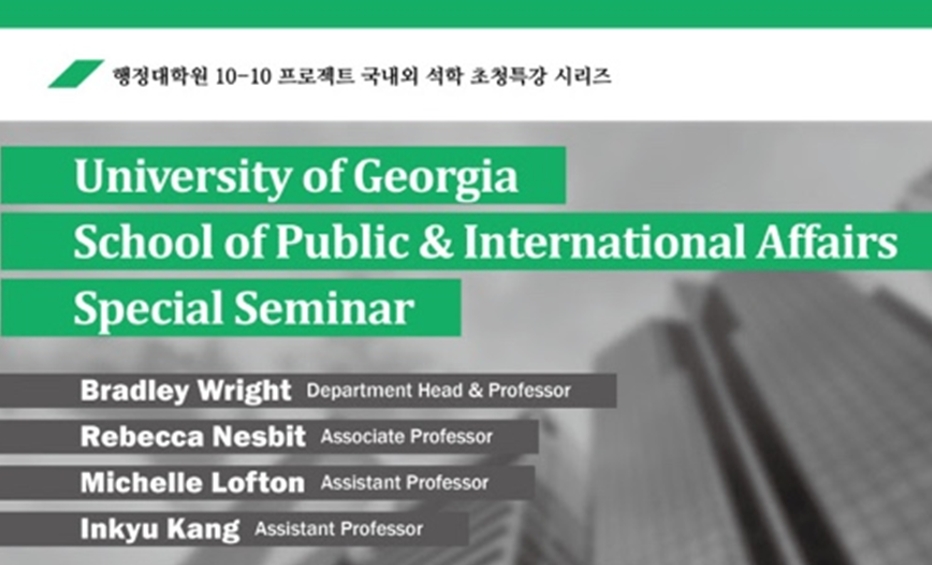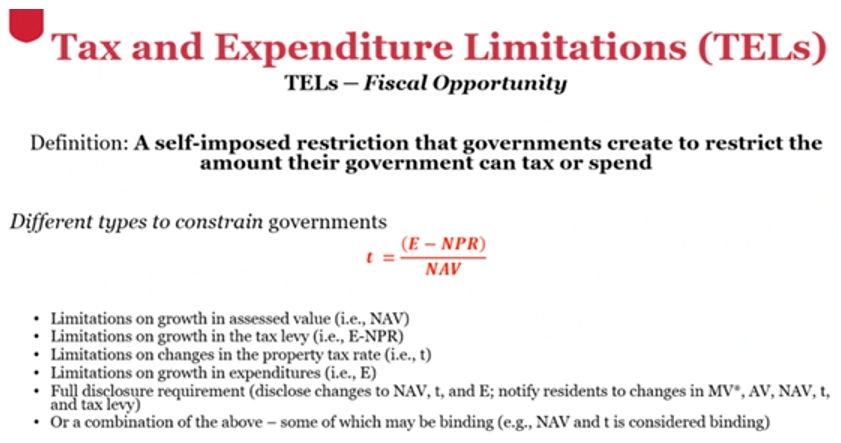As part of its ongoing lecture series under the 10-10 Project, with goals to strengthen the university’s research capabilities in select academic disciplines, the SNU Graduate School of Public Administration hosted a special seminar in collaboration with the School of Public and International Affairs at University of Georgia (UGA SPIA). The seminar, held on February 13, included presentations led by current UGA SPIA faculty members. The presentations aimed to explore the field of public administration and shone light on the discipline’s untapped research potential.

The poster of the Special seminar led by University of Georgia
Inkyu Kang (Assistant Professor, SPIA) began the seminar with a presentation on his paper “Strategic Framing of Administrative Burdens as Rhetorical Politics.” Expanding upon his paper’s title, Kang explained that administrative burdens are practical barriers preventing citizens from taking advantage of government benefits or services. Noting that administrative burdens could be exploited to skirt formal procedures in policy making, he highlighted that state actors choosing to do so had an underlying incentive to maintain public support. Proceeding to his hypothesis, Kang introduced the concept of framing cues: methods by which state actors might influence citizens’ beliefs to present administrative burdens as a necessary part of government programs. He further elaborated that his research goal was to investigate whether the usage of framing cues could influence state actors’ performance to be viewed in a more positive light.

The Three Types of Framing Cues presented by Professor Kang
Given recent revisions to Korea’s National Basic Livelihood Security Program (BLSP)—a welfare program administered by the Ministry of Health and Wellbeing— Kang, alongside fellow co-researchers, set out to determine whether framing cues affected Seoul citizens’ perception of the Ministry’s overall performance. As the program had been subject to changes hampering its accessibility, their questions served as a pertinent research topic. Their hypothesis was verified when results demonstrated that framing cues, particularly the program selectivity and program economy cues, increased the likelihood of citizens viewing the Ministry favorably.
Following Kang’s presentation, Michelle Lofton (Assistant Professor, SPIA) introduced her paper “Fiscal Opportunity Coupled with Political Willingness.” Drawing attention to the fact that income inequality had been worsening in America, Lofton explained that, moving forward, it would be important to ascertain state policies that might exacerbate or alleviate the problem. In emphasizing the significance of this line of inquiry, Professor Lofton highlighted Tax and Expenditure Limitations (TELs) as the primary topic of her paper.

A Definition of TELs presented by Professor Lofton
Building upon prior research and addressing its limitations, Lofton presented six treatments through which her paper aimed to distinguish the effects of TELs and partisan government regime control on income inequality. Drawing upon data from 49 states, Lofton and her research partner discovered that, independently, neither exerted a significant effect on income inequality.
All in all, the seminar served to inspire students in the audience who are passionate about research, as well as strengthen SNU and UGA’s ongoing relationship in the field of Public Administration.
Written by Min Seo Ki, SNU English Editor, mskey717@gmail.com

